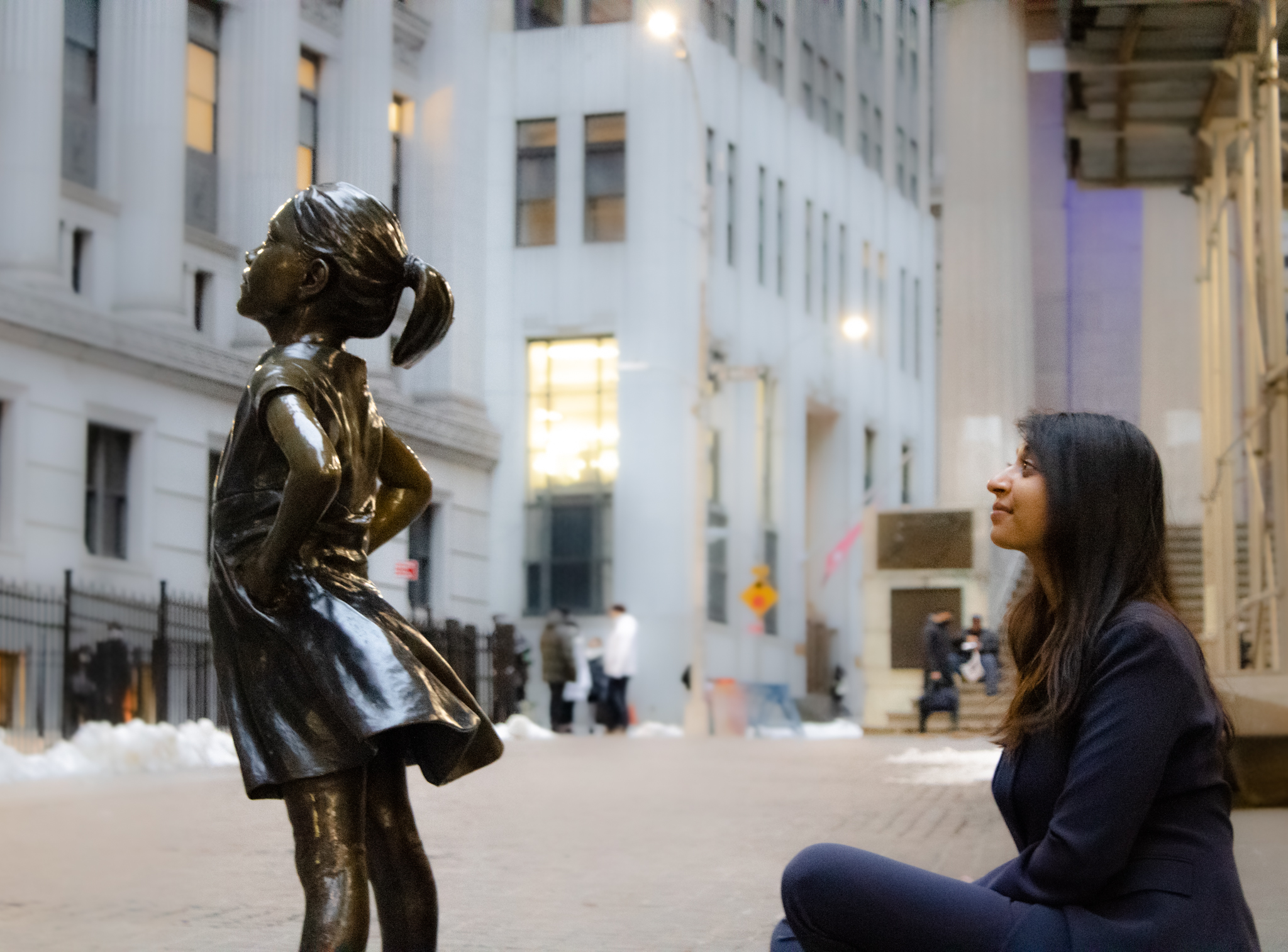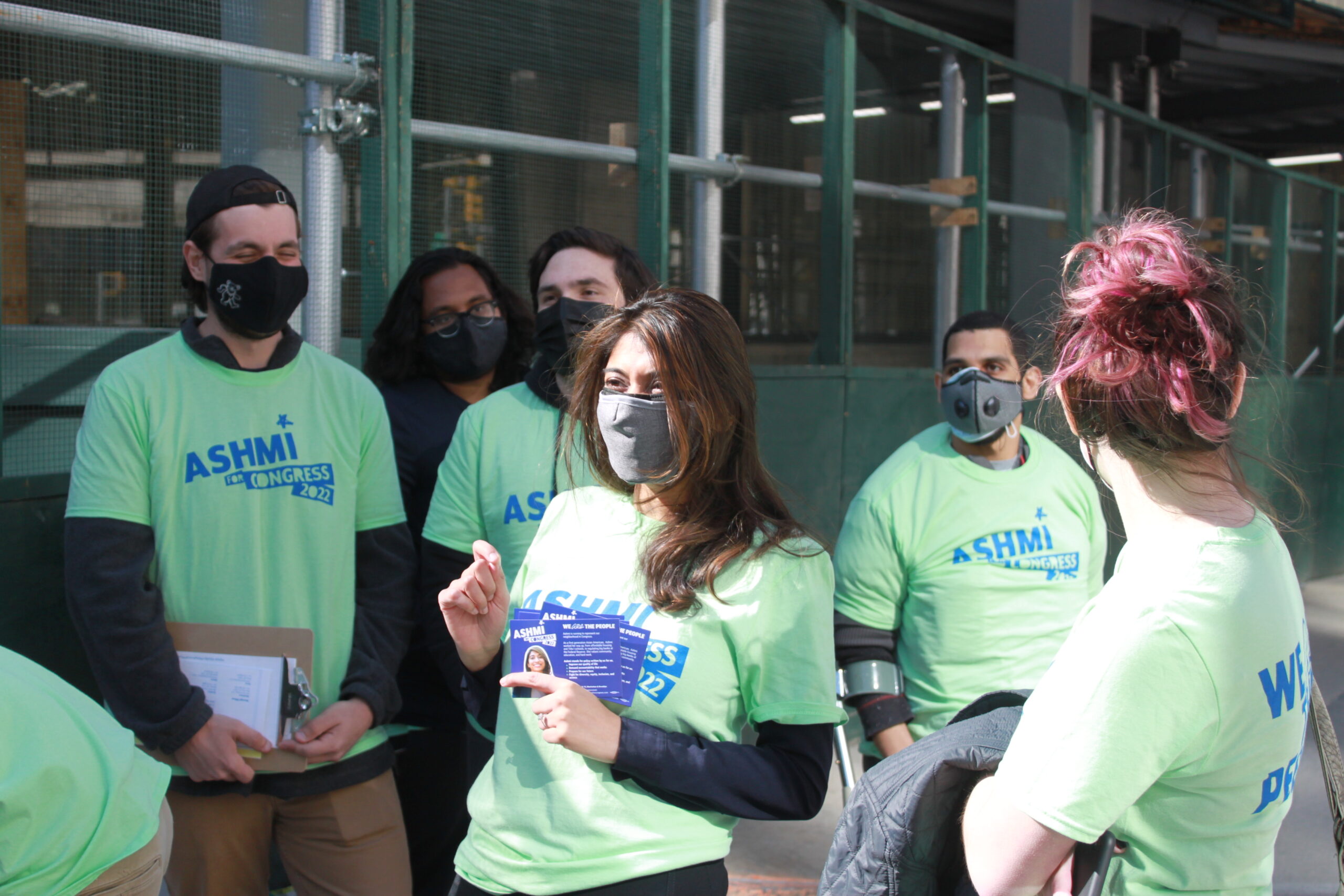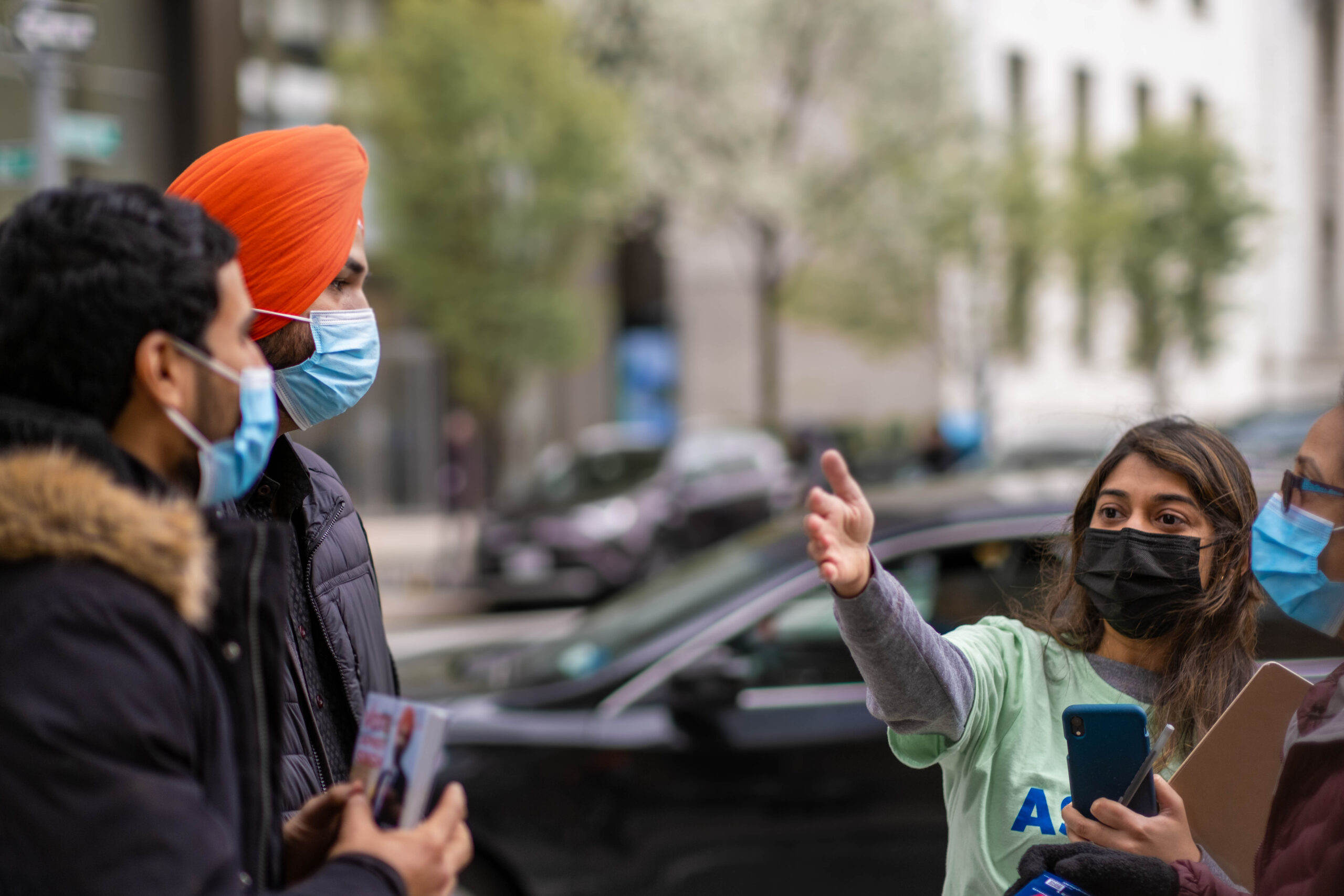Meet Ashmi Sheth: Candidate for Congress Representing NY-10
Photos courtesy of Ashmi Sheth
Very rarely do we find young Asian Americans spending their 20’s campaigning on the bustling streets of New York City, canvassing for the rights of citizens and historically marginalized communities. However, if you head to District 10, there is a brilliant activist and public figure, Ashmi Sheth, who announced her campaign for U.S. Congress on April 5.
I had the privilege of having several conversations with Sheth, during which she impressed me with her humility and charm, allured me with her stories, and spoke to me at length with intention, passion, and conviction.
We have spoken at length about how the history of our parents and ancestors have shaped us and our values, which is very telling in the way we communicate and display our work. Tell me a little bit of your story.
“Unlike most people around them who had arranged marriages, my parents are high school sweethearts. They fought for their love. They met in Mumbai, dated for seven years, and married in California.
They had less than $25 when they arrived to the US. I witnessed indescribable emotional heaviness; the culture shock, pain, and trauma my parents experienced — from having significant credit card debt and repeating their education when it wasn’t internationally recognized to navigating their identities — who they are individually and where they collectively want to go.
My brother and I are bridges of my parents. Ma is the creative and Papa is the strategic long-term planner. We are resourceful and did not take for granted free museums, public libraries, schools, colleges, and neighbors who took care of us after-school. We had countless long family dinners with direct and honest conversations around what it means to be self-sufficient and how to manifest your own power in a positive way – especially for me, as someone with fibromyalgia for thirteen years.
I have cried hard when I remember the mental toll my family has experienced, but our family story has made the four of us resilient — and that grit and empathy built the roots of my journey in public service. Few directly understand the costs of immigrating to the U.S. Our community’s oral history has not been recognized or shared widely enough. We must and will do more.
For me, running for Congress as a Brown woman given where my family started – it feels like our wildest dreams.”
Congratulations on announcing your campaign on the behalf of all young Asian Americans! How has education shaped you and your interest in public policy?
“I went to a Title 1 school, but studied hard and got accepted into a specialized public test school (was the last person selected from the wait-list). The Humanities magnet program at Poolesville changed my life as I took advanced courses in history, media, language, and the arts. So much of success comes from the people you surround yourself with at an early age and every child must have the opportunity to access high-quality education no matter what neighborhood they live in.
It began with a high school internship in county government and 500+ hours of community service in the summers. At the University of Maryland College Park, I worked on many state-level campaigns and organized hundreds of students, while graduating in 3.5 years with two degrees. I earned a Master’s in urban and economic policy from Columbia University, where I met my fiancé, Shivam. From international projects in Bangladesh, assessing how farmers could sell milk without it spoiling, to meeting policymakers in China, to working two to three jobs at a time – through it all I am a whistleblower and an organizer. I may have started early, but I want people to know that the time is now to build a movement for a cause you care about.”
[Read Related: Deepti Sharma: Small Business Owner and Community Organizer Runs for Queens City Council]
What you are doing is truly a one-in-a-million opportunity that some may struggle to muster up the time, energy, and confidence to do especially during the pandemic, where burnout and mental/physical exhaustion is at an all-time high. What is your outlook on forging your own path?
“I want people to think about what it takes to manifest your own ideas into reality. I know people in our community have done it in the past, and hope that many more do it in the future, but we need the strength and support to take the paths of more resistance.
For me, it meant quitting my job at PwC where I was nipping corporate fraud, waste, and abuse to take a $20,000 pay cut and work at a nonprofit think tank, Bipartisan Policy Center. It meant not succumbing to the apprehension of my family members who didn’t know what a think tank was but trusting my gut. There, I had direct access to Congresspeople and co-published reports on the 2008 financial crisis and how to build the small business ecosystem. It meant studying public policy and then working at a space no one in my family had taught me about — the Federal Reserve Bank of New York. As I worked in these spaces, I vividly remember being tokenized at work, being usually one of the only women or women of color in the room, and having to code-switch. I also remember learning about large systems of power and how easy it is for them to leave people out.
I am concerned that our community is not considered unified and so few of us are in politics. Our voice will not resonate in rooms of power until we put ourselves there. People my team regulated, who make millions every year, have no idea what life was like for people like my mom and dad. We cannot be okay with rising costs of tuition, inherent sexism in systems of power, immigrant experiences with poverty, lack of scholarship opportunities, or lack of climate urgency. Broad-scale policy decisions that affect our quality of life cannot be made for us without us there.
I have always been a confrontational and unapologetic advocate, and I refuse to sit passively. I want to let people know that I’ve talked to thousands from our community, and I know we want to be seen. We have a rich shared history but our cultures have had little to no recognition. There are barely any museums or nationwide school holidays, and most of what I’ve seen is mostly people commenting on how good our food is. We need to do more to have a collective voice and to share our story and history.
We also have to take the ego out of success and show care to our villages (our schools, teachers) and that means, if feasible, putting our time and money where our mouth is. It means public service and giving back — not just through careers where we profit but through external expressions of solidarity. “
Tell us a bit about the campaign and the platform you are standing for.
“Running for Congress and for office takes an incredible team, thick skin, will, and stamina. We talk to 200-500 people a day. The word “organizer” has so many meanings now — organizing communities to register and vote, organizing our team, organizing our comms + fundraising + field — there’s a lot.
At its core, our campaign is based around two questions: What do you care about? What needs more attention in politics?
The entire movement has been a conversation with people, many of whom are not represented in government. So many issues have been ignored by politicians, problems that can no longer be left off of the docket. What we do is crowdsource ideas on how to make government better and that becomes the foundation of our policy platform.
We have built a campaign that advocates for the very policies written by people with the lived experiences. We spoke with therapists and mental health advocates to write Mental Healthcare for All, and bridged someone who cared with a Senate budget advisor to write Eliminate Tax Shelters. We heard from doctors who warned us about our country’s unacceptable levels of maternal mortality, especially for black mothers and wrote Decolonize Birth Now.
I quit my job regulating big banks with the Federal Reserve because advocating for underrepresented voices is a 24/7 commitment. My partner and I sacrificed a level of stability and comfort to follow an unfamiliar path. There is always uncertainty around starting something new, but support from my village has turned that apprehension into confidence and persistence. Our first IG live was 15 minutes, our first video took hours to make, and our first brief wasn’t published for a month. Those are the realities of a grassroots campaign. Now, we’ve posted over 40 different policy pieces, finish multiple videos a day, and speak with people every day with pride and conviction.
We are fighting to expand financial security for working people and the middle class, to ensure transparency in systems of power, to lead a forward thinking government, and to build diversity and inclusion. We won’t stop — we are a new generation of leaders.”
[Read Related: Moumita Ahmed Helped Organize Millennials for Sanders. Now She’s Running for City Council in Queens.]
What are some of your favorite things that you do “off the clock”?
“Shivam and I bike everywhere and have an annual Citibike membership — we bike in the dead of winter too when there is cold wind blowing on our faces! We would bike crosstown to Lamarca to eat homestyle Italian food — it is our favorite.
Hanging out with people I love, and empowering people to fight for their rights are my favorite things to do — check out our Instagram!”
Support Ashmi through her website, and be sure to tune in on June 16 at 6:30 pm EST for BrownGirlMag x Ashmi IG Live!
The post Meet Ashmi Sheth: Candidate for Congress Representing NY-10 appeared first on Brown Girl Magazine.



